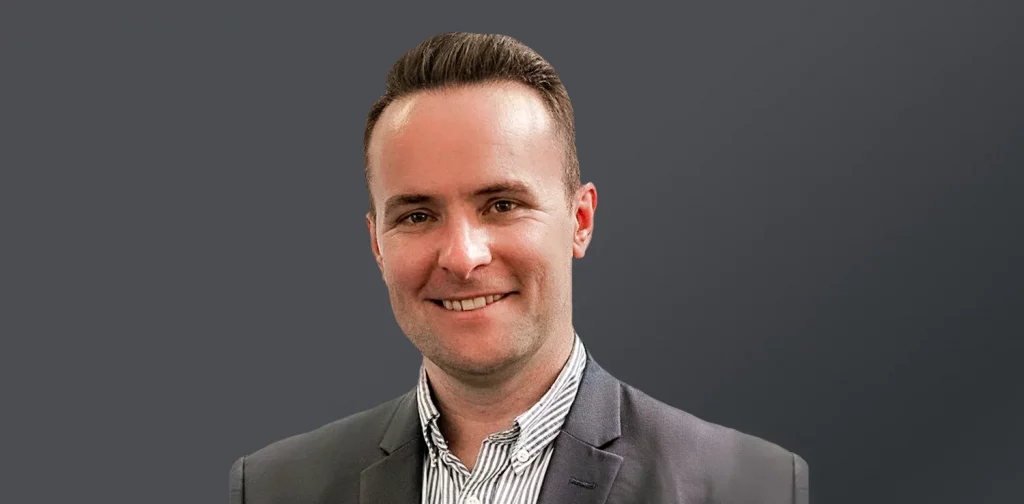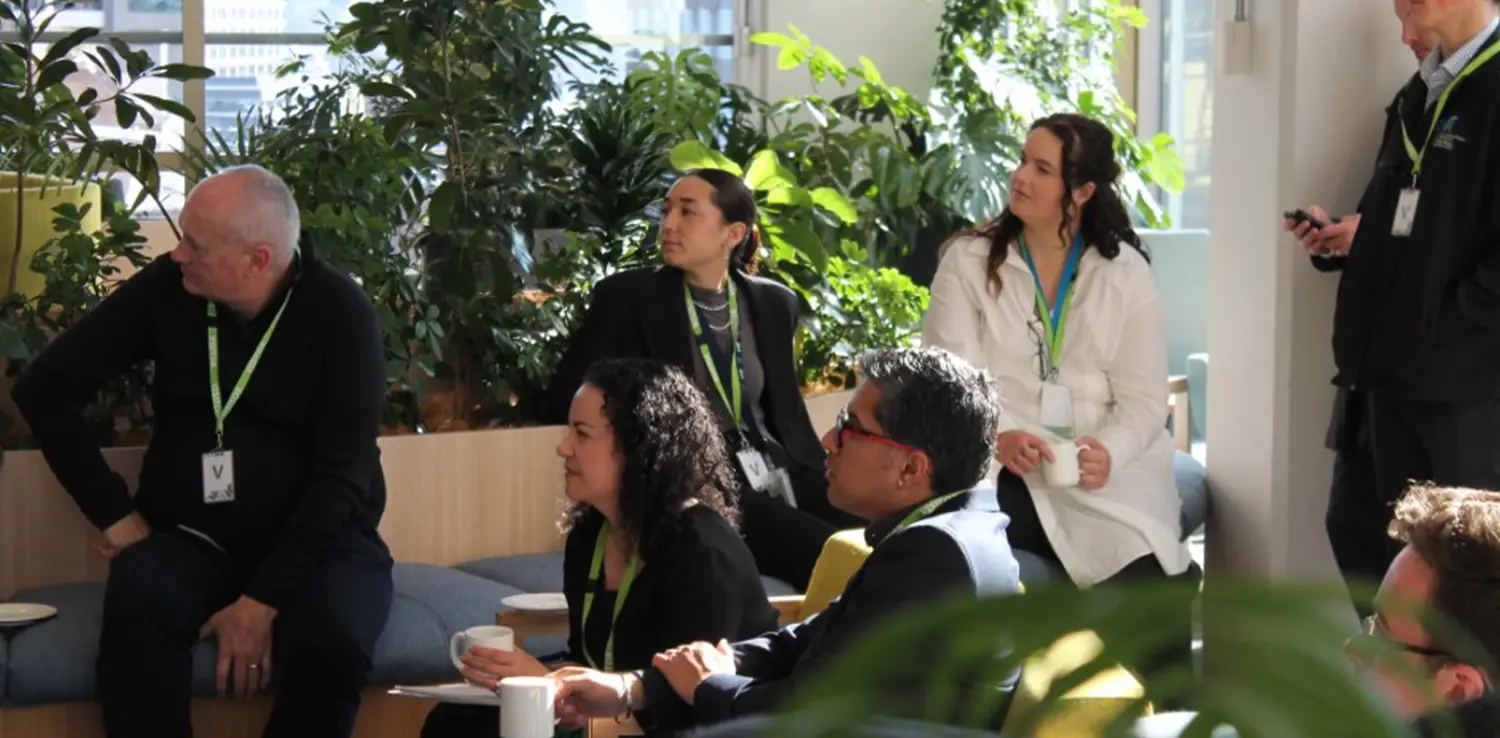An Interview with Ben Whitehouse, Chief Workplace and Sustainability Officer at Civil Aviation Authority of New Zealand

Ben Whitehouse, Chief Workplace and Sustainability Officer at Civil Aviation Authority of New Zealand. | Photo: Civil Aviation Authority of New Zealand.
Can you tell us about your organization and your current role?
I work for the Civil Aviation Authority of New Zealand (CAA) and lead the Workplace and Sustainability team. The CAA is a safety and security regulator to ensure a safe and secure aviation system − so people are safe, and feel safe, when they fly.
What have been your most difficult challenges in achieving your sustainability goals?
We’ve had challenges with getting data. This isn’t something you can achieve on your own. You need to work with partners and suppliers who understand the purpose, and what and why you are trying to achieve a certain outcome. After all, what you can’t measure, you can’t manage, and a fundamental is having the data to inform decisions. The Civil Aviation Authority of New Zealand is an intelligence-led risk-based modern regulator, and my team is an intelligence-led enabling function to not only deliver sustainability outcomes but also drive efficiencies and reduce our operational costs.
Another challenge is balancing the short and long term goals. It’s important to keep a focus on the big picture and system outcome, even though the quick wins are very important in the opportunity and impact on scale.
It’s common for some people to be resistant to change, and this is difficult. If change is framed as a challenge, people are more likely to buy in and help achieve the desired outcomes. It’s also helpful to have awesome people around you who keep the energy high and drive outcomes and meaningful change.
There is also some very cool technology we are working with, and this has several benefits, not just the sustainability element. It just makes good business and operational sense to drive efficiencies and reduce our operational costs.
What opportunities do you see to address those challenges?
Taking a whole of system approach and collaborating with our suppliers and stakeholders is key to delivering awesome sustainability outcomes and drive efficiencies and reduce our operational costs. We engage in a collective manner by default to achieve an outcome that is bigger than us. We have refined our data sources and will continue to do so. We are also learning and will continue to do so. We are learning from our network, our stakeholders with sustainability just being a factor in how we aim to run a slick operation.
There are some very cool opportunities we are looking into, which are not just around “electric vehicles”. It’s more the question for us – what’s the outcome we need, and how do we get an outcome with additional benefits bigger than the intended challenge? It’s really powerful to ask yourself, “What are we looking to address, and how can we address this whilst creating a broader, better outcome impacting others?”
How do you integrate ESG material into your corporate sustainability?
At the Civil Aviation Authority of New Zealand, we make them visible and engaging. There is a need to make the material ‘real’ and really understand your intended audience and how best to transfer the information to them. It’s also being respectful and understanding there is no one solution. You really need to consider how, when, and what you are communicating to make sure it hits the mark.
What were the most exciting initiatives and progress that you and your team have done in 2023?
We have achieved lots in 2023. And the main thing was collaborating and engaging with our people. One of our key objectives is for “sustainability” to become just how we do things, normalizing the purpose, and embedding sustainability by default in everything we do. This also drives efficiencies and reduces our operational costs.
In a short period of time, we have established our internal “green team” to both ensure sustainability is embedded into the roots of the Authority whilst also driving initiatives across the network. We also understand that to create impact, we need to share knowledge and take a whole of system approach to achieve our sustainability and efficiencies/cost outcomes. For this very reason we have established the first network across several government agencies to collaborate wider and achieve collective goals. Some ideas we are working on are also very exciting. For instance, how we can create 360 waste cycles and incorporate this into our business operations, like turning plastic bottles to anti-fatigue standing mats for example.
Another exciting accomplishment was receiving the Toitū carbon reduce certification. As an organization, we just started measuring our carbon emissions. Being certified shows we’re committed to becoming carbon neutral by 2025, achieving our operational emissions reduction target of 42% by 2030, and helping to reduce our operating costs.
What are the lessons you learned from your sustainability efforts in 2023?

The main lesson would be that you can’t do this on your own. There is a need to create a coalition of the willing to achieve awesome whole of system sustainability outcomes which will also achieve efficiencies and reduce our operational costs as a great byproduct. I am fortunate to work closely with passionate people who are focused on broad outcomes. This really does “spin the wheel faster”, so to speak.
What are your plans for your sustainability efforts in 2024?
We have lots in the pipeline for 2024, which includes continuing opportunities around our fleet (which will drive our sustainability outcomes, but also reduce our fuel bills) and how we perform this activity, moving forward on our first “green star” building and ensuring sustainability is just how we do things. For example, threading initiatives into our procurement activities, how we function, and moving sustainability into a conversation that everyone has as business as usual by default.
If you were to share advice you learned in your role that may be helpful to your peers and sustainability practitioners around the world, what would that be?
Engage widely and create a coalition. There is so much passion and awesome opportunities in this area, it’s very exciting. The key thing is not to work in silos and get to the wrong conclusion. Let’s collaborate and achieve great collective outcomes.
Editor: Nazalea Kusuma


 Indian Gig Workers Push Back Against 10-Minute Delivery Service Strain
Indian Gig Workers Push Back Against 10-Minute Delivery Service Strain  Call for Governance: Grassroots Initiatives Look to Scale Efforts to Conserve Depleting Groundwater
Call for Governance: Grassroots Initiatives Look to Scale Efforts to Conserve Depleting Groundwater  Integrating Environment, Climate Change, and Sustainability Issues into Education Systems
Integrating Environment, Climate Change, and Sustainability Issues into Education Systems  Finally Enforced: Understanding the UN High Seas Treaty
Finally Enforced: Understanding the UN High Seas Treaty  Risks and Opportunities of Submarine Communication Cables for Sustainable Development
Risks and Opportunities of Submarine Communication Cables for Sustainable Development  Rising Attacks and Violence Against Land and Environmental Defenders
Rising Attacks and Violence Against Land and Environmental Defenders